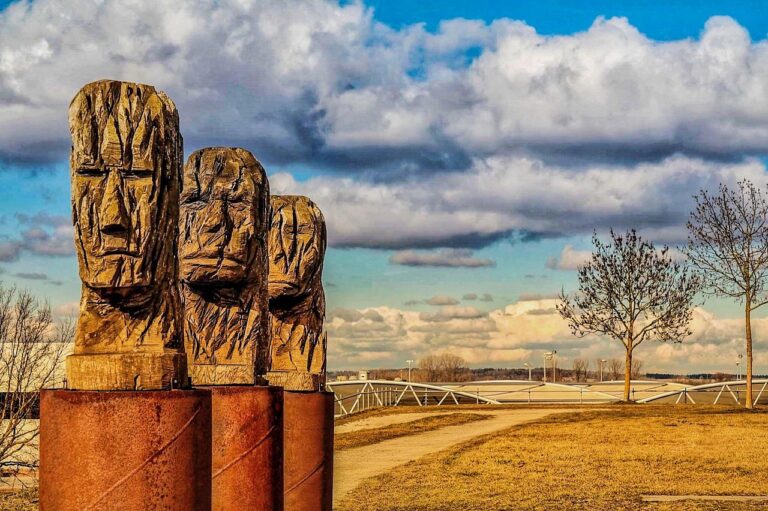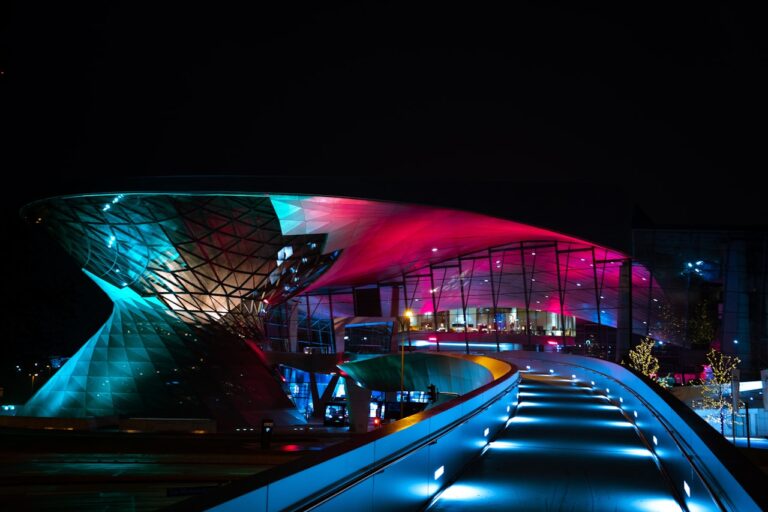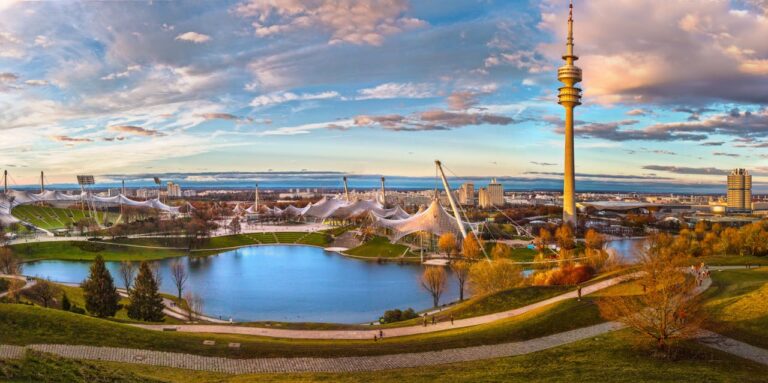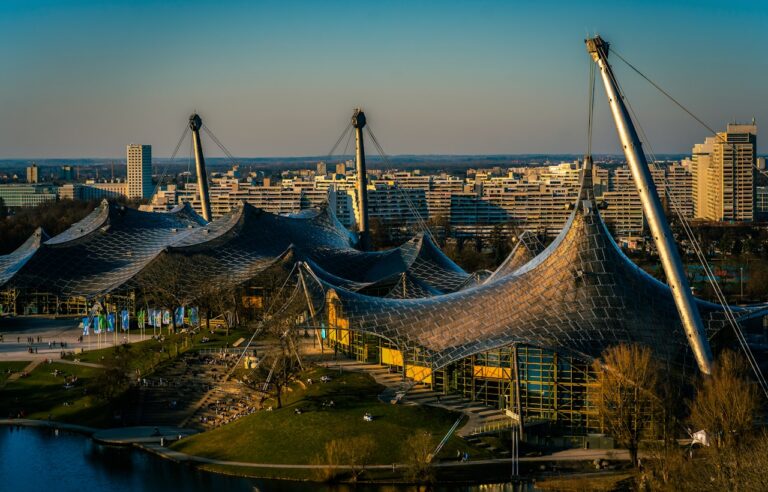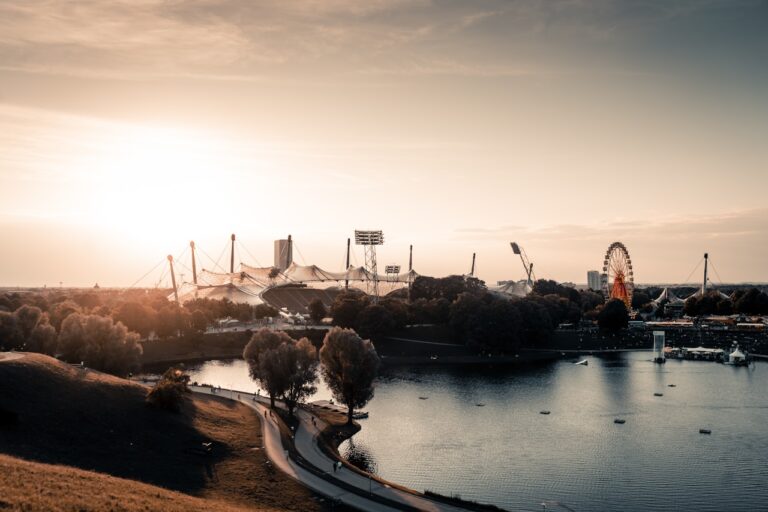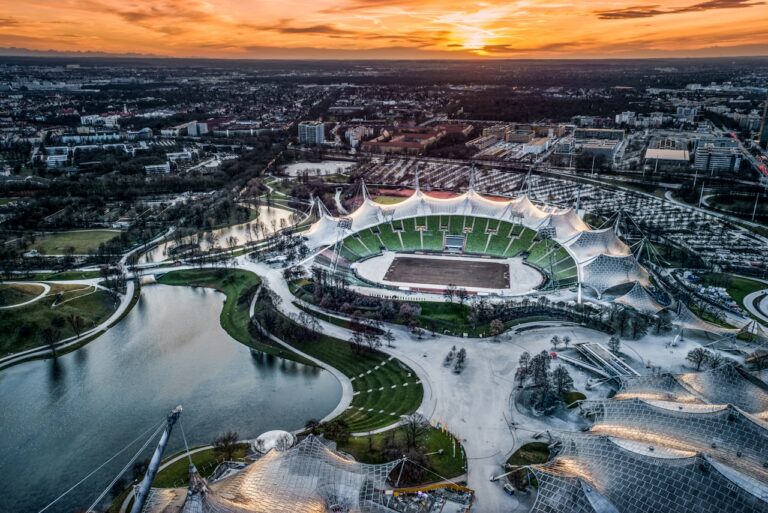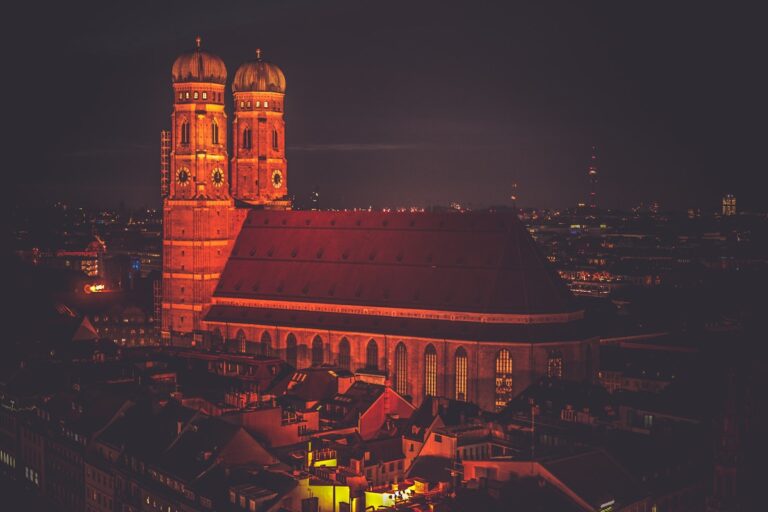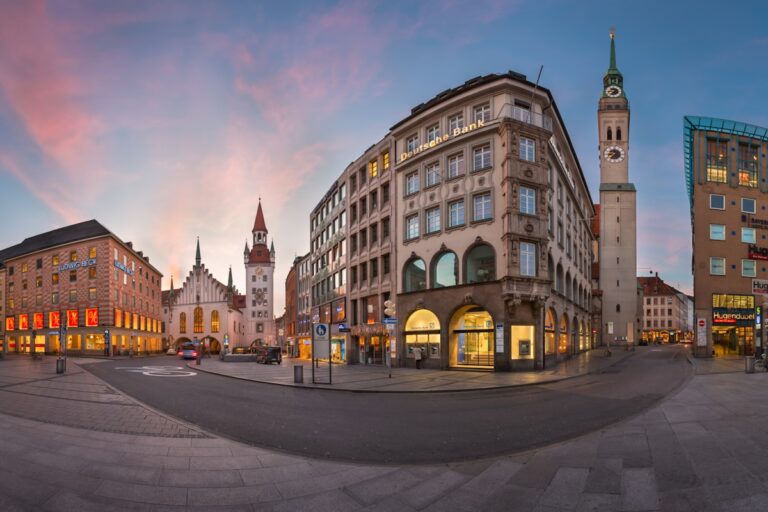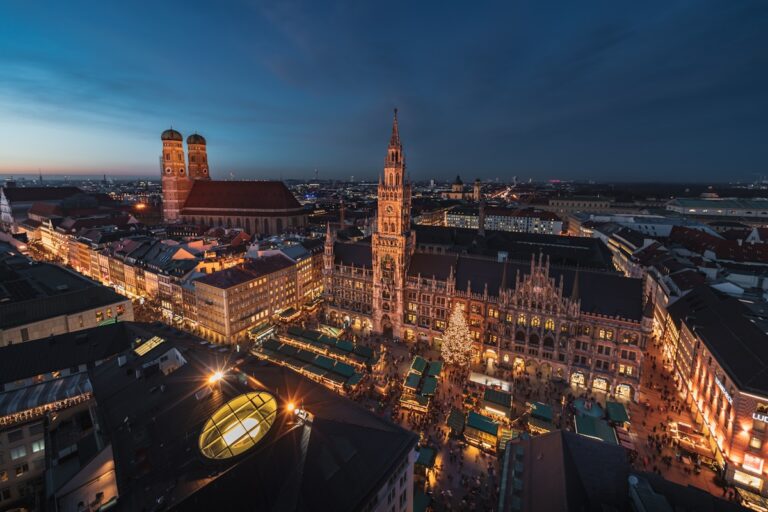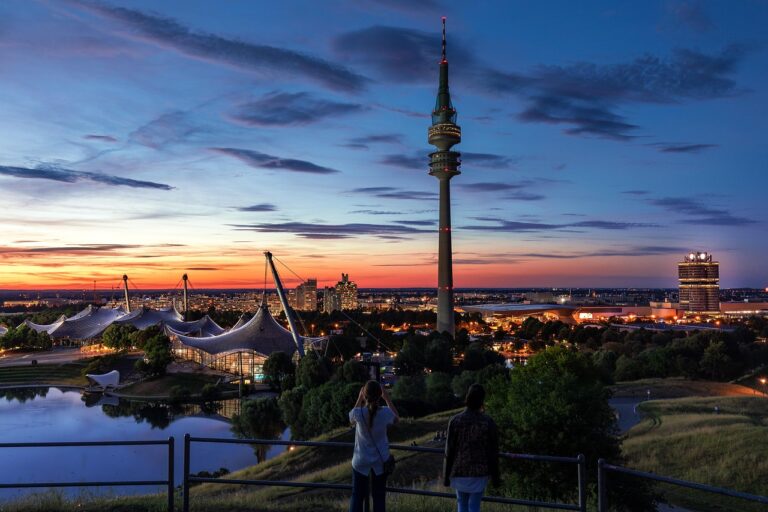
Munich
Munich, Germany combines Bavarian tradition with modern sophistication, offering you a rich tapestry of cultural experiences, historical sites, and culinary delights. This guide presents expert recommendations for exploring Bavaria’s capital, with practical advice on attractions, seasonal events, transportation, and regional day trips.
Experience Munich’s Historical Center
Munich’s Altstadt (Old Town) houses centuries of Bavarian history within a compact, walkable area of 2.5 square kilometers. Marienplatz forms the heart of the district, where the New Town Hall’s Glockenspiel performs its mechanical dance daily at 11:00 AM, 12:00 PM, and 5:00 PM (summer only); the 43 bells and 32 life-sized figures reenact historical Bavarian events dating back to the 16th century.
Plan your Munich trip with expert advice on Bavarian history, traditional cuisine, distinct neighborhoods, transportation options, and unmissable day trips from Bavaria’s capital.
The nearby Frauenkirche cathedral, with its distinctive twin onion domes reaching 99 meters, serves as Munich’s most recognizable landmark and provides a useful orientation point throughout the city.
The Residenz, once home to Bavarian royalty, spans 10 courtyards and 130 rooms open to the public. This palace complex developed over seven centuries (1385-1918) and houses three main sections: the Residenz Museum, Treasury, and Cuvilliés Theatre. A combined ticket costs €13 and allows access to all areas; audio guides in multiple languages can be rented for an additional €5.
Savor Bavarian Culinary Traditions
Munich’s food scene centers on hearty Bavarian specialties served in traditional beer halls and garden settings. Weisswurst (white veal sausage) represents a quintessential Munich breakfast, traditionally consumed before noon with sweet mustard, pretzels, and wheat beer; proper etiquette involves peeling the sausage rather than cutting through the casing. The Viktualienmarkt, a daily food market operating since 1807, spans 22,000 square meters with over 140 stalls selling fresh produce, specialty foods, and prepared dishes from 8:00 AM to 6:00 PM (closed Sundays).
Beer culture thrives in Munich with six major breweries (Augustiner, Hacker-Pschorr, Löwenbräu, Paulaner, Spaten, and Hofbräu) producing distinctive varieties according to the Reinheitsgebot (German Beer Purity Law) of 1516. Beer gardens accommodate thousands of guests in outdoor settings; the Hirschgarten, Munich’s largest beer garden, seats 8,000 patrons and permits guests to bring their own food while purchasing beverages from the establishment, following Bavarian custom.
Navigate Munich’s Distinct Districts
Schwabing, once a separate city until 1890, developed as Munich’s artistic quarter through the late 19th and early 20th centuries. This northern district borders the 3.7-square-kilometer Englischer Garten (English Garden), one of the world’s largest urban parks, where 75 kilometers of paths accommodate walkers, joggers, and cyclists. The district contains numerous cafés, boutiques, and the Ludwig Maximilian University, creating a blend of academic and bohemian atmospheres.
The Maxvorstadt area houses Munich’s museum quarter, with seven major institutions within walking distance of each other. The Pinakothek museums (Old, New, and Modern) display art spanning from the Middle Ages through contemporary periods; a day pass for all three costs €12 and represents the most economical option for art enthusiasts. The nearby Lenbachhaus Gallery showcases the “Blue Rider” movement, featuring works by Kandinsky, Marc, and other early 20th-century Munich-based expressionists.
Plan for Seasonal Events and Activities
Oktoberfest, despite its name, primarily takes place during the last two weeks of September, concluding on the first Sunday of October. This 16-18 day festival attracts approximately 6 million visitors annually, who consume over 7.5 million liters of beer. The Theresienwiese grounds host 14 large tents and 21 small tents, each associated with different Munich breweries and offering distinctive atmospheres; weekday mornings typically provide the best opportunity for securing seats without reservations.
Winter brings Christmas markets to Munich from late November through December 24th, with the main market at Marienplatz dating back to the 14th century. Approximately 160 stalls sell handcrafted gifts, seasonal foods, and Glühwein (mulled wine) daily from 10:00 AM to 9:00 PM. Smaller markets appear throughout the city, each with unique themes: the Medieval Market at Wittelsbacher Platz recreates historical ambiance, while the Schwabing Christmas Market emphasizes artistic crafts from local designers.
Utilize Efficient Transportation Options
Munich’s public transportation network consists of U-Bahn (subway), S-Bahn (suburban trains), trams, and buses operating on a unified ticket system. The MVV (Munich Transport and Tariff Association) divides the city into rings, with central Munich comprising zones M-2; single tickets cost €3.30 for this inner area, while day passes cost €7.80 and provide unlimited travel for one person. Services run approximately from 4:00 AM until 1:00 AM on weekdays, with continuous night service on weekends.
The compact nature of central Munich makes walking practical for many sightseeing purposes, with major attractions in the Altstadt often within 15-20 minutes of each other by foot. Bicycle infrastructure includes over 1,200 kilometers of dedicated paths and the MVG Rad bike-sharing program, which offers 1,200 bicycles at 125 stations throughout the city; registration requires a smartphone app and costs €0.08 per minute of use.
Explore Day Trips from Munich
The fairytale-like Neuschwanstein Castle sits 120 kilometers southwest of Munich in the Alpine foothills. Built for King Ludwig II in the 19th century, this castle receives 1.4 million visitors annually; advance tickets should be purchased online at least two days before visiting to secure entry times. Public transportation requires approximately 2.5 hours each way via train to Füssen, followed by a bus to Hohenschwangau village and either a 40-minute uphill walk or horse-drawn carriage ride to the castle.
Dachau Concentration Camp Memorial Site, located 17 kilometers northwest of Munich, provides historical documentation of Nazi atrocities from 1933-1945. The S2 train from Munich reaches Dachau in 25 minutes, followed by a 10-minute bus ride; admission is free, though audio guides cost €4.50. The memorial opens daily from 9:00 AM to 5:00 PM and requires approximately 2-3 hours for a thorough visit.

